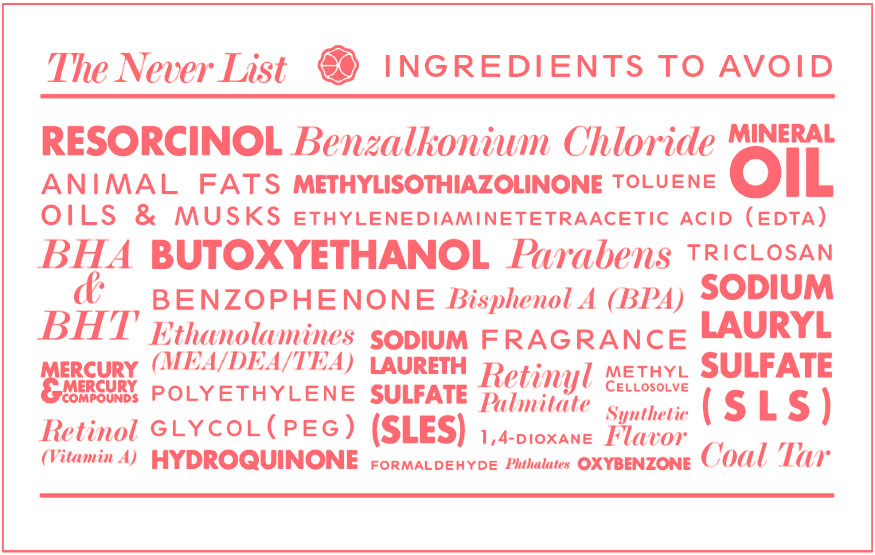January is the Month of Resolutions and Recognizing Thyroid Disease
January is the month of resolutions; renewed commitments to fitness, nutrition, nontoxic products, diet and taking better care of ourselves, are a few of many improvements we commit to annually. This month is a great time to look at making positive health changes. As we look inward, we may ponder areas we want to change or improve from last year. Some accomplishments we are proud of, and some, we feel could be improved, so we make big plans to make positive changes for the New Year. While our effort may be on target and our actions on the right path, some still struggle with seeing and feeling the results of major lifestyle improvements through diet, exercise, good nutrition, and nontoxic products. Often, mainstream or fad diets are only temporary solutions and they don’t get to the heart of the matter and searching for nontoxic products that won’t encourage disease and alter our hormones is challenging. Really, who can even pronounce half of the ingredients we need to avoid! Our health is unique with each of us carry DNA from our parents and previous generations which create our distinctive genic code that might carry alternations that impact our health. One of these alternations may well impact our thyroid. This disease is brought to our awareness in January, as millions of individuals are newly diagnosed with the disease and learn how to best manage it through medication, diet, alternative treatments, and lifestyle modifications, among other changes.
The thyroid gland is located below our Adam’s apple and wraps around the trachea (windpipe) and is controlled by the pituitary gland and the hypothalamus. Thyroiditis means “inflammation of the thyroid gland” and includes different variations of the disease such as” Hashimoto’s thyroiditis, postpartum thyroiditis, and subacute thyroiditis to name a few. Thyroiditis consists of an immune (antibody) attack on the thyroid causing inflammation and damage to the cells. Thyroid disease can be overactive (Hyperthyroidism) or underactive (Hypothyroidism). Our energy, weight, bone density, hair, skin and nail quality, among other things are impacted by this disease. The thyroid uses iodine to produce critical hormones, namely, thyroxine (T4) and triiodothyronine (T3) which are produced by the gland. When the thyroid hormone levels are low, the hypothalamus in the brain produces a hormone called thyrotropin-releasing hormone (TSH), which stimulates the thyroid gland to release more T4. When you have the disease your body either produces too much or too little of the hormones needed for proper function.
Thyroid function benefits from good nutrition as do all diseases. Non Genetically Modified Organisms (non-GMO), and Organic whole foods provide your body with nutrients to assist it in performing at optimal levels. Look for foods known to reduce inflammation, such as fruits, vegetables, fish and olive oil. Some of the best foods include leafy greens which are packed with nutrients like vitamin A, C and K, potassium, and fiber. Fruits such as apples have skins that are rich in pectin and detoxify our body by sticking to toxic compounds like mercury and excreting them through our urine. Pectin also can limit the amount of fat our cells absorb, so it’s diet friendly. Seaweed is rich in iodine which feeds the thyroid with what it needs to function properly. Yogurt protects the thyroid because it’s rich in vitamin D which helps with weight maintenance, and provides good bacteria that support a healthy gut balance which positively impacts our weight. Salmon is one of the best fish for metabolism because of its anti-inflammatory properties from the omega-3 fatty acids. Also, studies suggest that fish fatty acids may signal thyroid cells in the liver to burn more fat. With all fish, it’s best to purchase wild-caught versus farmed to avoid contaminants that may impact your thyroid function. It’s difficult to get the recommended daily allowances of fruits and vegetables and omegas from fish and olive oil, so finding a supplement that is backed by scientific research that bridges the nutritional gap is vital to good health.
Another area that needs some mention is your skin. Your skin is also impacted by your thyroid so maintaining healthy skin begins with good nutrition and a healthy thyroid begins with removing products with toxins from your skin care and makeup. Look for those products that provide proof that they omit the hundreds of toxins currently in many of the products on the market. Skincare and makeup products aren’t regulated by the government, and self-regulation has its limits, so look for products that provide clear information that they clean from harmful ingredients. Your body will thank you.
New Year’s resolutions are easier to keep when you build your knowledge on what can help your body perform at its best through good nutrition and nontoxic products. Taking small steps towards changing bad choices and replacing them with good choices will help you age better, look better and feel better. Are you up for the challenge to feel and look your best?



Posted in: Alzheimer’s, Health, Healthcare, JuicePlus, Nutrition
Leave a Comment: (0) →